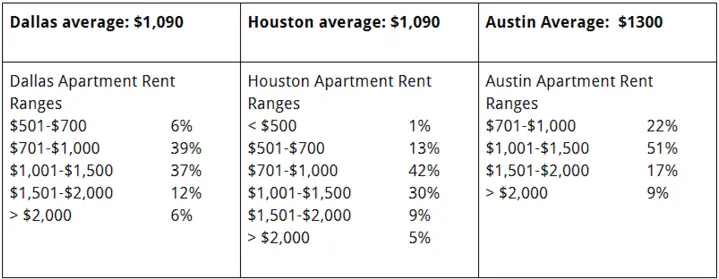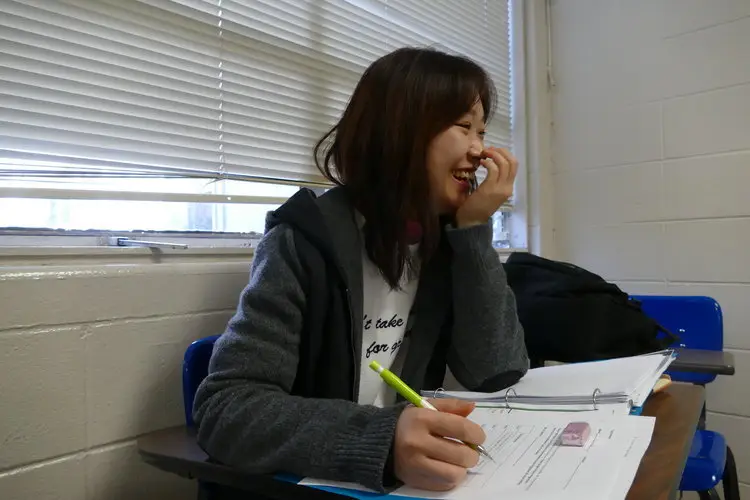Exchange Visitor Resources
Information for Incoming Visitors
Exchange Visitor Resources

Pre-arrival Information
Are you subject to the two-year residency requirement? Before accepting your exchange, please be aware of the two-year home residency requirement (Section 212(e) of the Immigration and Nationality Act). This requirement bars some EVs from returning on another J visa exchange program for two years following the end of their program
Are you subject to the 12- or 24-month bar on repeat participation? Before accepting your exchange, please be aware that you may be barred from returning to the U.S. on a J visa again within 12 or 24 months of a previous J visa program.
Where to pay your SEVIS fee
How to submit your Visa Application
Video about arriving to the U.S.
Know Your Rights, a guide from the Department of State

Cost of living in Texas depends largely on the city and neighborhood. A good starting point to figure out how much money you will need to live in Texas can be found in this cost of living interactive map of Texas.

RentCafe estimates the following for 2019 monthly rent for a one-bedroom apartment. On-campus housing may be significantly cheaper, as is rent in most smaller cities. Be sure to check with your inviting faculty member or campus contact person to see if student housing is available and to seek assistance finding housing.

Pre-departure checklist
Make travel plans to allow sufficient time to familiarize yourself with your host university. J-1 exchange visitors may arrive up to 30 days before the program start date listed on the DS-2019.
Weather in Texas can be extreme! We have an average of 300 sunny days per year, and summer temps can be intense! But we do have freezing temperatures on occasion, especially in January and February. Pack a variety of clothing for all seasons, including a warm overcoat and summer attire.
Consider bringing your traditional or national costume to wear for cultural events.
Exchange some currency to US Dollars either before leaving or at the airport. A mix of $5, $10, & $20 bills will be helpful.
Check with your university for help with housing arrangements.
Collect and organize immigration documents and put in your carry-on (hand) luggage. You will need to carry the following documents with you:
Valid passport with J visa
DS-2019
Health and/or travel insurance
T/IPP (Student interns only)
Determine transportation from airport to the university or your housing. Most airports have taxis, shuttles, and ride-share services like Uber or Lyft available.
Ensure you have all required immunizations or arrange to get them. Your university can tell you what (if any) immunizations they require.
Bring all prescription medicines and copies of prescriptions you will need during your stay.

SINCE 1990, THE TEXAS INTERNATIONAL EDUCATION CONSORTIUM (TIEC) HAS SPONSORED EXCHANGE VISITORS AND THEIR DEPENDENTS ON J VISAS FOR STUDY, WORK, AND RESEARCH AT HIGHER EDUCATION HOST INSTITUTIONS THROUGHOUT TEXAS AND BEYOND.
The Exchange Visitor Program fosters global understanding through educational and cultural exchanges. All exchange visitors are expected to return to their home country upon completion of their program in order to share their exchange experiences.
The J Visa Exchange Visitor Program consists of several principal parties:
The Department of State (DOS)
Issues J visas, designates exchange visitor program sponsors, and creates and administers regulations and policies governing the Exchange Visitor Program.
Exchange visitor program sponsor (TIEC)
Serves as exchange visitor program sponsor for participating institutions of higher education.
Responsible Officers (ROs)/Alternate Responsible Officers (AROs) (TIEC employees)
Represent TIEC and create and manage SEVIS records.
TIEC Designated Campus Representatives
Apply for exchange visitors through their university as well as orient and assist exchange visitors before and during exchange.
Exchange Visitors (EVs)
Participate in exchanges.
The Department of Homeland Security (DHS)
Manages SEVIS, admit EVs to the United States.
SEVIS Help Desk
Assists ROs and AROs in correcting SEVIS issues.
Don’t miss these visa interview tips from TIEC’s President and CEO Robin J. Lerner:

Health Insurance
Medical insurance is a requirement for all EVs. Acceptable insurance policies must include the following coverage.
REQUIRED MINIMUM INSURANCE COVERAGE
Major Medical Coverage: $100,000
Medical Evacuation: $50,000
Repatriation of Remains: $25,000
Maximum Deductible per Accident/Illness: $500
MINIMUM POLICY RATING (Must Comply With One)
A.M. Best rating of “A-” or above
McGraw Hill Financial / Standard and Poor’s Claims-Paying Ability rating of “A-” or above
Weiss Research, Inc. rating of “B+” or above
Fitch Ratings, Inc. rating of “A-” or above
Moody’s Investor Services of “A3” or above
**All policies must fully comply with the Patient Protection and Affordable Care Act**

What will life be like in America?
Of course everyone’s experience will be unique, but we have compiled some resources for you to get an idea of what to expect from your experience.
Read about a wide variety of exchange visitor experiences
Upon arrival at your university, check in with the person identified as TIEC’s Campus Representative, whose name is found on the letter you will receive with your DS-2019.
There you will be oriented to your new campus and they will collect important information and copies of your documents which they will forward to us to validate your program participation.
BridgeUSA Resources
Texas Resources
